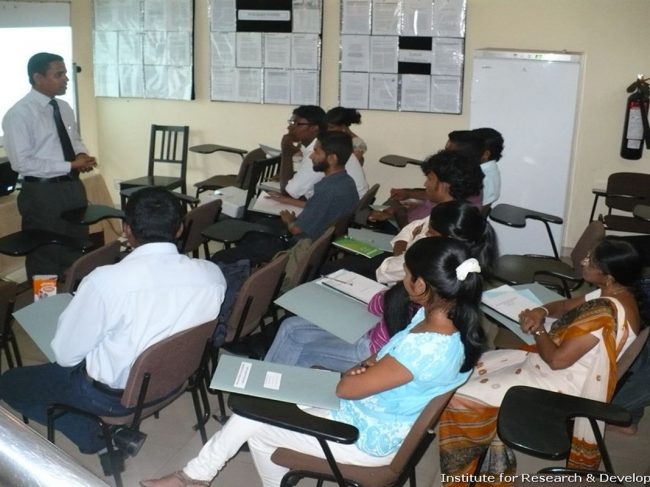
This project conducted by the Institute for Research and Development (IRD) in Health & Social Care was commissioned by the Ministry of Health and was funded by the International Organisation for Migration.
The Ministry of Health and the International Organization of Migration took the initiative to develop an evidence based migration health policy for Sri Lanka.
The IRD carried out a study on the impact of spouse migration on left behind families.
The overall aim of this study was to determine the association of spouse migration with socio-demographic and health factors of family members and compare it with a matched group of families without a history of migration.
The following areas were compared between the left behind families and the matched control group of families without a history of migration;
Socio-demographic profile of the participants
Leading causes of morbidity and mortality of spouses, children and caregivers
Predefined emotional & behavioral problems of children
Mental health issues among caregivers & spouses
Factors that may contribute towards health & socio-economic outcome
The following aspects were also assessed through the study;
The Knowledge and practices of the spouse and / or caregiver
How to respond in the event death or abuse of the migrant worker
This study was a mixed method study with quantitative and qualitative components. Quantitative component of the study was conducted among 820 participants in 6 districts (Colombo, Gampaha, Kalutara, Kandy, Kurunegala and Puttalam) having the highest number of departures for foreign employment, which adds up to 62% of total migrant population.
Families of the 410 migrant workers were randomly selected from the above districts along with a similar number of comparative families with the same age and gender as the selected study group. Children were individually matched from the class (of schooling children) or the child welfare clinic (of Pre-schooling children) to locate the comparison group.
All study instruments used were adapted from original questionnaires, translated from English to Sinhala and Tamil, validated and used in many larger scale studies in Sri Lanka.
Siriwardhana, C., Wickramage, K., Siribaddana, S. et al. Common mental disorders among adult members of ‘left-behind’ international migrant worker families in Sri Lanka. BMC Public Health 15, 299 (2015). https://doi.org/10.1186/s12889-015-1632-6
The study titled “Impact of Spouse Migration on Left-behind Families” was conducted by the Institute for Research & Development in Health & Social Care in partnership with the International Organization of Migration and the Ministry of Health as part of the ‘National Migration Health research’ agenda. It was recommended by the Government of Sri Lanka’s ‘Inter-Ministerial Taskforce on Migration Health’, and sought to contribute to an evidenced-based ‘National Migration Health Policy’ formulation process. Results of this study along with the other components of the National Research on Migration Health have contributed to the formulation of a comprehensive Migration Health Policy that has emerged as a priority for the government of Sri Lanka.
In 2011 the Sri Lankan Health Ministry and International Organization of Migration (IOM) took the initiative to develop an evidence based migration health policy in Sri Lanka. Institute for Research and development (IRD) carried out the research to study the impact of spouse migration on left behind families, and in 2013 the National Migration Health Policy was launched. The Second National Symposium on Migration Health and Development was held on June 2015, and the IRD was specially acknowledged for contributions on the project.